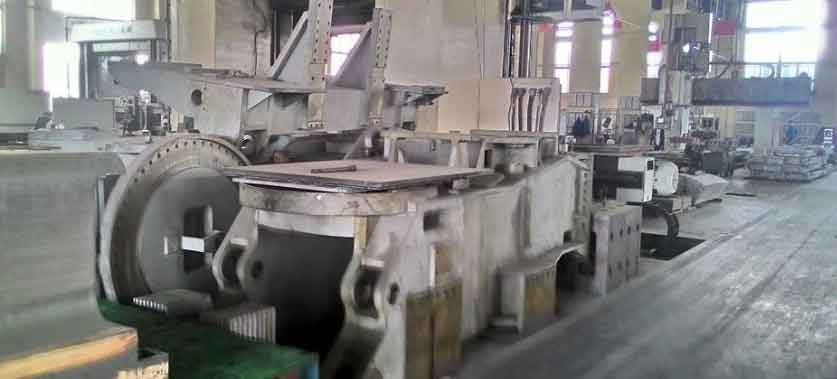Large steel castings offer several advantages in heavy industries, where robust and durable components are required to withstand demanding operating conditions. Let’s explore the specific advantages of large steel castings in heavy industries:

- Strength and Durability:
- Large steel castings are known for their exceptional strength, making them suitable for heavy-duty applications.
- They can withstand high loads, impact forces, and harsh environments, ensuring long-lasting performance in heavy industries.
- Steel’s inherent mechanical properties, such as high tensile and yield strength, provide the necessary structural integrity for heavy machinery and equipment.
- Wear and Abrasion Resistance:
- Heavy industries often involve abrasive environments that can cause wear and degradation of components.
- Large steel castings offer excellent wear and abrasion resistance, minimizing the effects of friction and extending the lifespan of the equipment.
- Steel alloys can be selected or modified to enhance their wear resistance, ensuring reliable operation even in challenging conditions.
- Customization and Complex Geometries:
- The casting process allows for the production of large steel castings with complex shapes and intricate geometries.
- This customization enables the design of components that are specifically tailored to heavy industrial applications, optimizing performance and functionality.
- Complex features, such as internal cavities, flanges, and intricate internal passages, can be incorporated into the casting design, eliminating the need for multiple assembled parts.
- Reduced Weight:
- Large steel castings offer weight advantages compared to alternative manufacturing methods such as fabrication or forging.
- By utilizing hollow sections and optimizing the design, weight can be significantly reduced without compromising strength and performance.
- Reduced weight contributes to improved energy efficiency, lower transportation costs, and easier installation and maintenance of heavy industrial equipment.
- Cost-Effectiveness:
- Large steel castings can be cost-effective solutions for heavy industries.
- The consolidation of multiple parts into a single casting eliminates the need for complex assembly processes, reducing labor costs and potential points of failure.
- The casting process also minimizes material waste, resulting in cost savings in terms of raw material usage.
- Large-scale production of steel castings further enhances cost-effectiveness through economies of scale.
- Corrosion Resistance:
- Heavy industries often operate in corrosive environments, such as chemical plants, marine applications, and mining operations.
- Large steel castings can be produced from corrosion-resistant alloys, providing protection against corrosion and increasing the component’s lifespan.
- Protective coatings or surface treatments can also be applied to further enhance corrosion resistance, ensuring long-term performance in harsh conditions.
- Versatility and Application Range:
- Large steel castings find application in various heavy industries, including mining, construction, oil and gas, power generation, and transportation.
- They are utilized in components such as machinery frames, crusher parts, gears, pulleys, and heavy equipment structures.
- The versatility of large steel castings allows them to meet the specific requirements of different heavy industries, providing reliable solutions for diverse applications.
The advantages of large steel castings in heavy industries make them indispensable for the manufacturing of robust and durable components. Their strength, durability, customization options, and cost-effectiveness contribute to improved performance, efficiency, and reliability in heavy industrial applications. Continuous advancements in casting technology and metallurgy further enhance these advantages, enabling the production of even more sophisticated and high-performance large steel castings for heavy industries.
